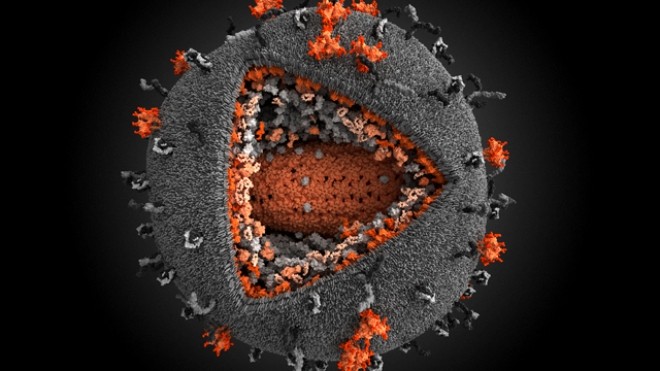
As an RNA virus, HIV is a retrovirus. When infected with human cells (primarily CD4+ T cells), it reverse transcribes its own RNA into DNA and inserts it into the host genome for replication and synthesis of new viral particles.
In a new study, researchers from the Lewis-Kates Medical School at Temple University in the United States used genetic editing techniques to successfully remove a sequence of HIV-1 DNA from the living animal genome for the first time. This breakthrough is a key step in developing a therapeutic strategy that is potentially resistant to HIV infection. The results of the study were published in the May 19, 2016 issue of Gene Therapy, entitled "Excision of HIV-1 DNA by gene editing: a proof-of-concept in vivo study". Dr. Kamel Khalili, Ph.D., author of the paper, and director of the Center for Neurovirology at the Lewis-Kaz School of Medicine, Temple University, explains, "In this proof-of-concept study, we confirmed that our gene editing technology can be efficiently applied to two small models. Many organs of animals are capable of excising large fragments of HIV viral DNA from the host cell genome."
Current methods of treating HIV infection focus on the combined use of antiretroviral drugs. Although antiretroviral drug therapy is effective in inhibiting HIV replication, this does not remove HIV-1 from HIV-infected cells. Furthermore, when antiretroviral therapy ceases, HIV replication reappears, leaving patients at risk of acquiring acquired immune syndrome (AIDS, a disease caused by HIV infection). This latent infection occurs because HIV DNA persists in the genome of CD4+ memory T cells and possibly other cell repositories, where the HIV virus remains in a latent state and is unaffected by current therapies.
In an earlier study (Scientific Reports, doi:10.1038/srep22555), Dr. Khalili and colleagues were able to confirm that their new gene editing system based on CRISPR/Cas9 technology can clean HIV from infected cells in vitro. 1, and there is no side effect on the host cells. In in vitro experiments with clinical samples, including T cells from HIV-infected patients, which were proliferated in laboratory culture, they demonstrated a significant reduction in viral replication following treatment with this gene editing system (detailed news coverage) See also: Nature Supplement: Elimination of HIV-1 in the human T cell genome using CRISPR/Cas9.
Tetanus Vaccine,Hepatitis B Vaccine For Adults,Tetanus Booster,Td Vaccine
FOSHAN PHARMA CO., LTD. , https://www.fospharma.com